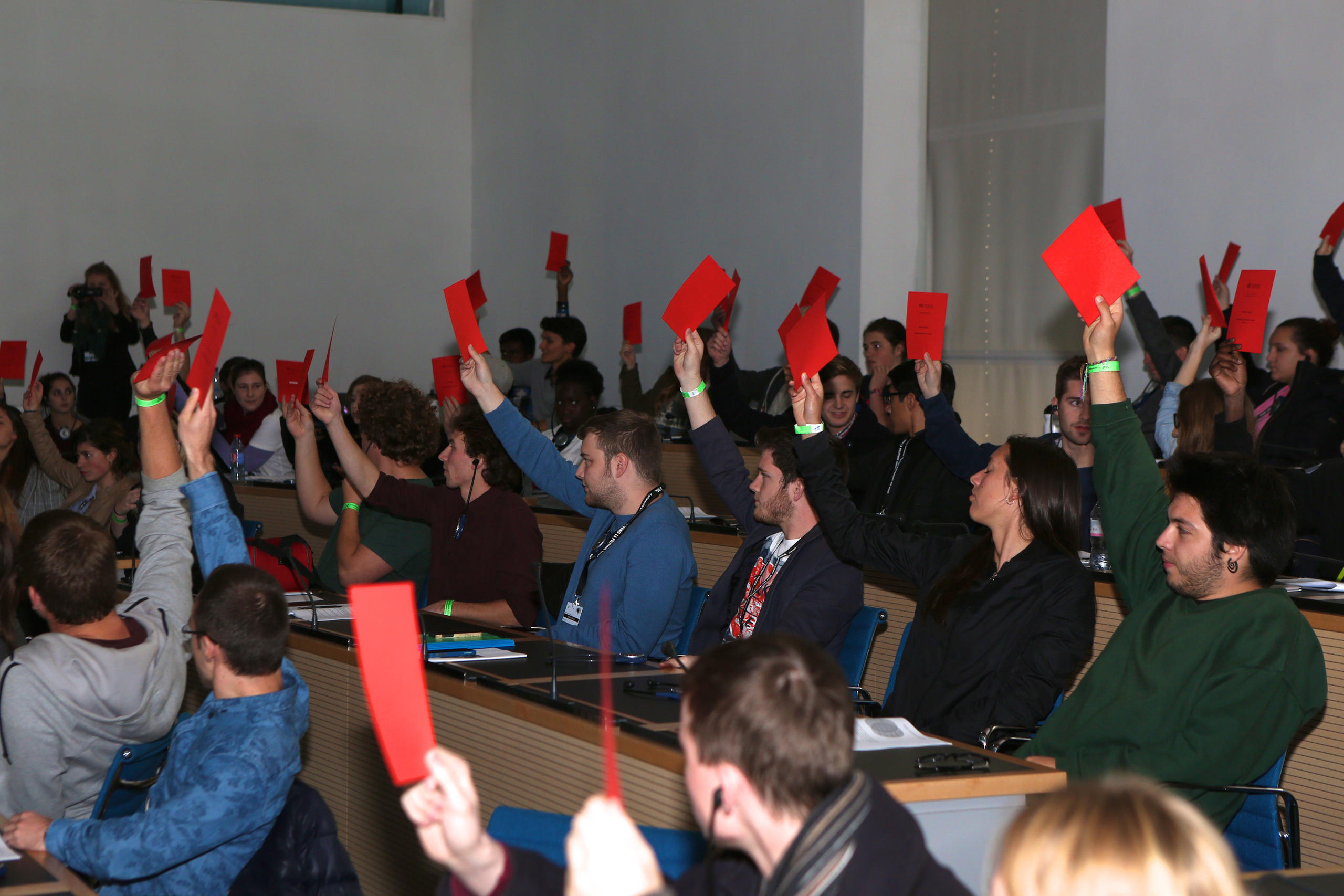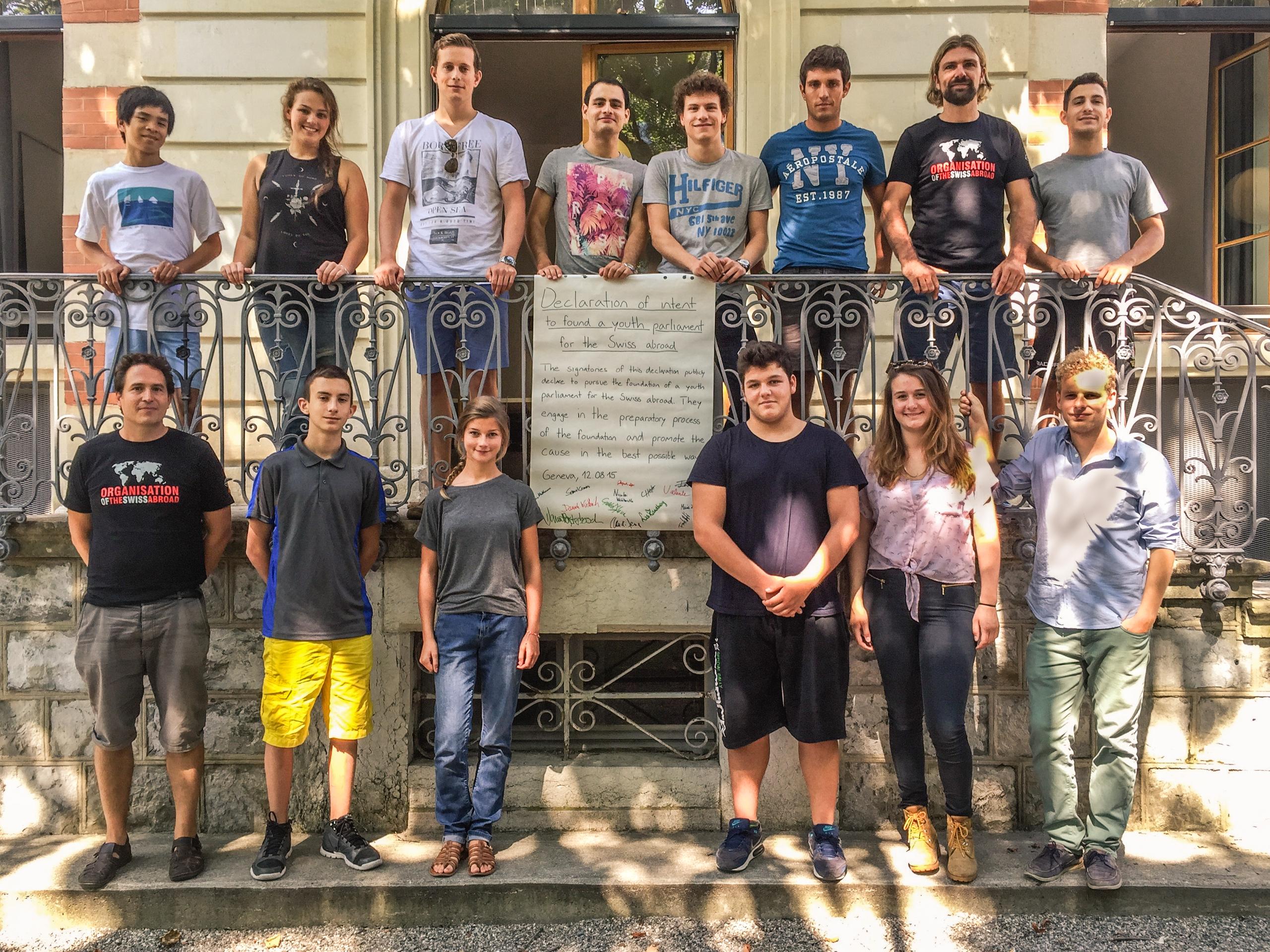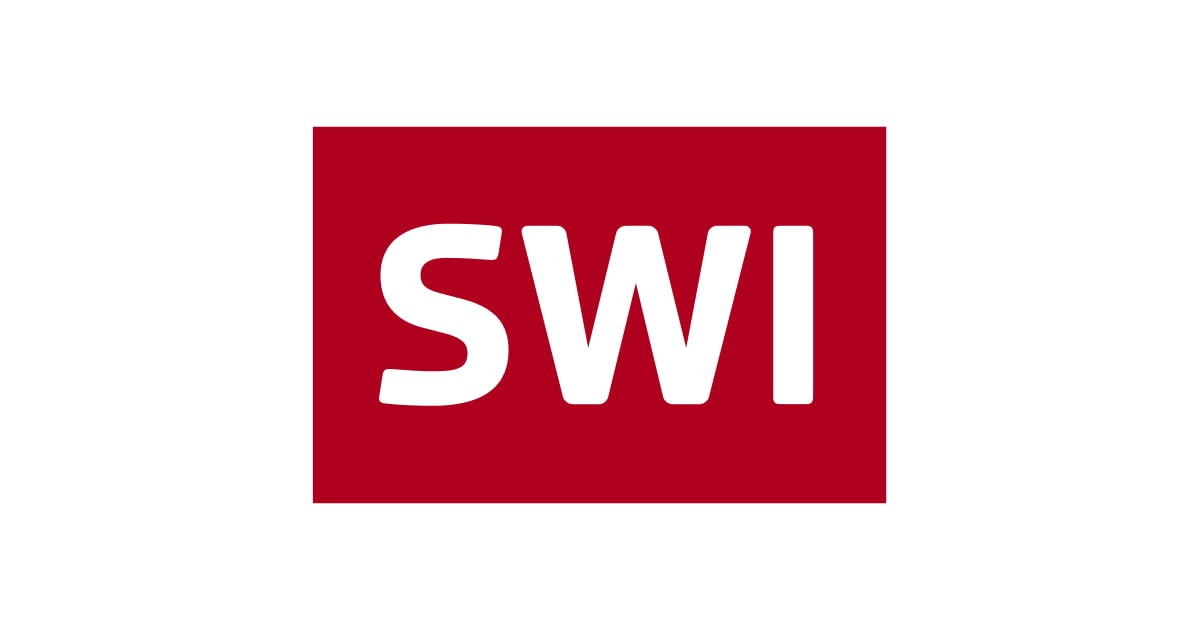Should Switzerland have a parliament for young people?
Moves are afoot to create a new national youth parliament in Switzerland. The time has come to empower young people in politics, argues Jonas Hirschi, head of a new group for the Swiss Federation of Youth Parliaments.
In Switzerland there are 66 youth parliaments at the local and cantonal level. Although in many cases they are organised differently, they have a common denominator: engagement by young people for young people on political themes and for causes that are of concern to the young.
At the national level, a comparable institutionalised form of political participation – well integrated in the political process and providing many young people with the opportunity to participate directly – is lacking. The umbrella organisation Swiss Federation of Youth Parliaments wants to change this with the establishment of a national youth parliament.
Particularly Switzerland, with its traditions of direct democracy and non-professional, “militia” politics, needs a system for nurturing political participation among the young.
At the municipal as well as the cantonal level, youth parliaments enjoy great popularity. On average, six youth parliaments are formed annually. It won’t be long until there is a cantonal youth parliament in every canton. These allow young people to engage on behalf of other young people – either by following a political path, or through their own projects.
Youth parliaments have already celebrated numerous successes. In Köniz, a suburb of the Swiss capital, for example, there is a late-night bus service thanks to a youth parliament project. In canton Vaud the concerns of the youth parliament were incorporated in a new education law. And in the region Fraubrunnen, also in canton Bern, high schools are open for youth activities in winter. These are just a few of the ways that youth parliaments can help improve the lives of young people. But in order to make a difference, they need guaranteed decision-making capabilities, even if these are limited.
There are already other countries in Europe that have national youth parliaments. In Liechtenstein there is a youth council which also belongs to the Swiss Federation of Youth Parliaments. The most active group is the UK Youth Parliament. Among other things, its democratically elected members develop a manifesto which is submitted to the government, organise lobbying events with politicians, and develop campaigns on political themes.
The other national youth parliaments in Europe are nonbinding platforms for discussion, more akin to the Swiss Youth Parliament.
Considering that Switzerland is a pioneer in direct democracy, the country still has a lot of work to do in the area of youth political participation: at the moment, it’s only one of many mediocre players in the game.
Existing options at the national level
Projects and organisations that promote the political participation of young people already exist at the national level. The most well-known of these is the Swiss Youth Parliament, which takes place once a year in the federal parliament building. Over a four-day period, 200 young people occupy the seats of the federal parliamentarians, discussing political issues and formulating non-binding motions that are submitted to their “elder peers”.
In addition to the youth parliament there are projects like “Schools to Bern”, which is active in the area of political education, or easyvote, which provides youth-friendly information in advance of votes and elections. There are also organisations like the Federal Commission for Child and Youth Affairs, which doesn’t involve young people directly but is designed to give them a voice in political matters.
Conspicuously, there is no national option giving young people political rights and allowing direct participation in politics.
New opportunities needed
In addition to evaluating current options for political participation by youths in Switzerland and in Europe, the Swiss Federation of Youth Parliaments also analysed whether young people and youth organisations perceive a need for a national youth parliament. It found that not only is the interest among young people greatest at the national level, but it is at the federal level that politics most needs to increase its options for youth political participation.
A survey carried out by youth organisations, youth parties and cantonal youth parliaments also identified a need for a new form of political participation that would give young people a voice at the national level.
In response to this clear need for a national youth parliament, the Federation developed three alternatives and presented them to its members at its 2016 annual meeting in Lucerne. Around 150 members from local and cantonal youth parliaments in Switzerland and Liechtenstein took part. The attendees voted clearly in favour of forming a new national youth parliament.
A project group will develop a concept in the coming months, with the goal of establishing a parliament for youth at the national level in the coming years.
The views expressed in this article are solely those of the author, and do not necessarily reflect the views of swissinfo.ch.
Opinion series
swissinfo.ch publishes op-ed articles by contributors writing on a wide range of topics – Swiss issues or those that impact Switzerland. The selection of articles presents a diversity of opinions designed to enrich the debate on the issues discussed.
Translated from German by Jeannie Wurz

In compliance with the JTI standards
More: SWI swissinfo.ch certified by the Journalism Trust Initiative













You can find an overview of ongoing debates with our journalists here . Please join us!
If you want to start a conversation about a topic raised in this article or want to report factual errors, email us at english@swissinfo.ch.